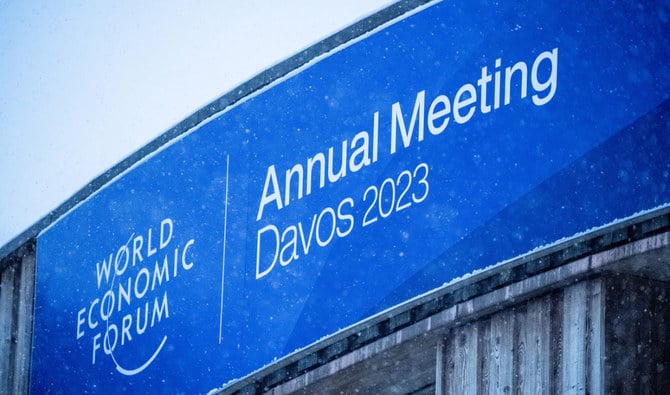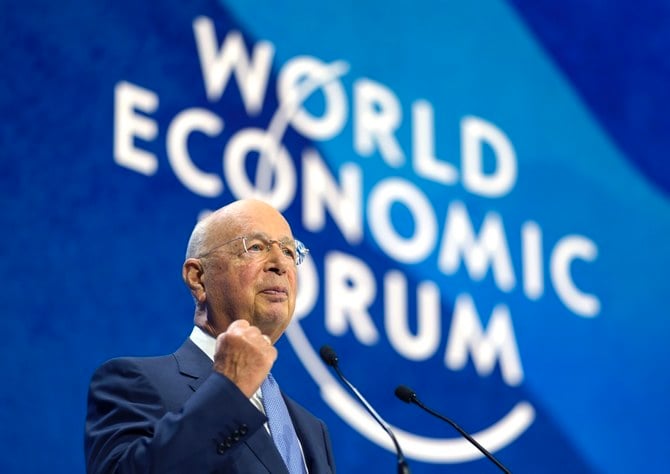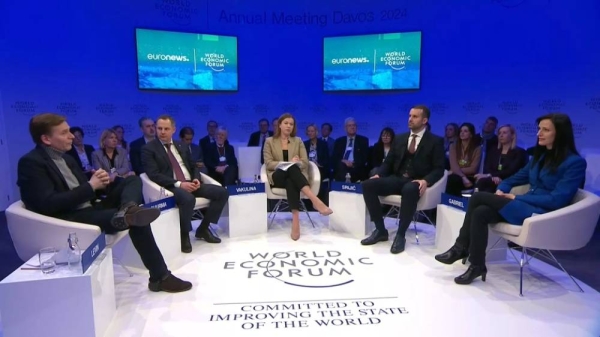
DAVOS: Somewhere between the small industrial town of Landquart in eastern Switzerland and the world-renowned resort of Davos near the Austrian border, the climate and countryside changes — or at least it has done at every Davos I’ve attended since 2012.
You pass from lowland country, following river valleys and what looks like very good arable land, and suddenly find yourself amid soaring Alpine scenery, with craggy mountains and glaciers rising out of icy-looking lakes.
But just yesterday morning, as I made the train journey to the 2023 World Economic Forum, the difference in the trip, compared with previous years, was unmistakable. There was simply less white and more green in the scenery. In fact, we were well on the way to Davos itself (which at an altitude of 5,000 feet is well above the snow line) before the usual wintry Alpine environment emerged.
Some climate activists said that this was incontrovertible evidence that climate change is already upon us, and at no less a place than Davos itself, the mountain abode of the “masters of the universe.”
Maybe. But you do not have to be a climate change denier to argue that it might also mean that the early part of January has been relatively mild in Switzerland. As I look at the skies over Davos, laden with snow clouds by late afternoon, and the forecasts of plummeting temperatures and blizzards for the rest of Davos week, it certainly seems like normal service will resume very soon.
I make no apology for spending a long time discussing the weather, because I think weather — or, more accurately, climate — is going to be the key issue at Davos this year, certainly for the big delegation from the Middle East and North Africa that has made its way up the Magic Mountain.
It comes on the heels the first UN Climate Change Conference to be held in the region, COP27 in Sharm El-Sheikh last November, and just a few days after the appointment of Dr. Sultan Al-Jaber as president designate of COP28, which will take place in the UAE toward the end of this year.
It also more or less coincides with Abu Dhabi Sustainability Week, which began on Saturday. This timing is unfortunate, because surely some of the experts gathered in the UAE capital would have liked the opportunity to spread their message in Davos, too. They would also have had the opportunity to explain the benefits of Al-Jaber’s appointment as the key steward of COP28, in the face of the rather hysterical reaction from environmental activists that greeted it.
For example: The fact that he is an environmental executive, through his work at Masdar, just as much as he an oil man, at Adnoc; How there is a net-zero possibility of pulling off the energy transition without the involvement and collaboration of hydrocarbon-producing countries and companies; and how hydrocarbons will continue to be essential to fueling economic growth in the decades it will take to transition to cleaner sources of energy.
Hydrocarbons will be essential to economic growth in the decades it will take to transition to cleaner energy
Frank Kane
Maybe WEF people would be more likely to listen to such persuasive arguments but I’m not entirely sure; the WEF, in an attempt to move away from the image of a club for the super-rich and fat-cat corporates, has had to take on board a lot of the environmentalist belief system, including some of the variations on the “just stop oil” extremism.
In this, it still adheres to its roots. Europeans — by far the most activist of environmentalists in addressing the actions of governments and energy companies — still dominate the WEF proceedings and philosophy in Davos.
This is a pity, because the WEF’s formula of public-private partnership could be the right approach to the climate change challenge, as long as it was interpreted broadly enough to include public organizations such as the national oil companies of oil-producing countries such as Saudi Arabia and others.
On the other hand, there is a record attendance from the Middle East and North Africa at WEF 2023, which could be seen as a sign that oil producers — emboldened by a successful COP27 in Egypt and the prospect of an era-defining event this year in the UAE — are finally carrying the argument to the bastion of environmental activism.
As for the climate/weather, I’ll reserve final judgment until I head back down the mountain on Saturday.











